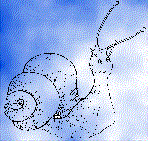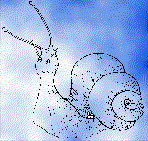
Lectures by Kalevi Kull

Biosemiotics
The nature of the semiotic paradigm in interpretation of the biosystems is
analysed,
also the formation of the biosemiotics and its basic terms.
More attention is
payed to the primary mechanisms generating the sign system. Concrete biological sign
situations will be analysed : genetic code, immunological system, role of the
recognition mechanisms in the species origin and resistance, mimicry, tropisms, reflexes,
semiotic aspects of species relationship, formation of language.
This interdisciplinary course is included into the program of the speciality
"Semiotics and Theory of Culture", and as a special course for biologists
interested in the latest developments of the theory of living
systems. Includes single lectures by Aleksei Turovski and
Aleksei Lotman.
1997/98 autumn semester - in Russian, on Mondays 12-14, Lossi 3-306.
1997/98 spring semester - in Estonian, on Mondays 12-14, Tiigi 78-312.
1998/99 spring semester - in Estonian, on Mondays 14-16, Tiigi 78-312.
1998/99 spring semester - in Russian, on Mondays 16-18, Tiigi 78-312.
Seminar in Biosemiotics
In 1998 spring semester, book by J.Hoffmeyer - "Signs of Meaning in the Universe"
was analysed. In 1998/99, the classic texts which will be included into
the "Anthology of Semiotics" will be discussed. Required for those who write a term paper or diploma work
on biosemiotics.
1997/98 autumn semester - on Tuesdays 16-18, Tiigi 78-308.
1997/98 spring semester - on Tuesdays 16-18, Tiigi 78-326.
1998/99 autumn semester - on Thursdays 14-16, Tiigi 78-312.
1998/99 spring semester - on Thursdays 14-16, Tiigi 78-312.
Ecosemiotics
Ecosemiotics can be defined as the semiotics of relationships between nature
and culture. This includes research on the semiotic aspects of the place and
role of nature for humans, i.e. what is and what has been the meaning of
nature for us, humans, how and in what extent we communicate with nature.
Ecosemiotics deals with the semiosis going on between a human and its
ecosystem, or a human in ones ecosystem. In this, it can be related to
ethnology and sociology of man-nature relationships, to environmental
psychology and the anthropology of environment, which, although quite close
to ecosemiotics, deal more with the comparative than the semiotic aspects of
the problem. Ecosemiotics is thus quite different from biosemiotics. Ecosemiotics
can be considered as a part of the semiotics of culture, which investigates
human relationships to nature which have a semiosic (sign-mediated) basis,
whereas biosemiotics can be seen as different from the cultural semiotic
field. Both, nevertheless, are researching nature from the semiotic point of
view.
1998/99 autumn semester - on Mondays 12-14, Tiigi 78-312.
1999/2000 autumn semester
Theoretical Ecology
An overview will be given from models and theories in nowaday ecology.
An independent work with literature is assumed.
In this semester, several classic papers by F.E.Clements, H.A.Gleason,
A.G.Tansley, A.S.Watt, G.E.Hutchinson, R.H.MacArthur, R.T.Paine,
L.B.Slobodkin, T.W.Schoener will be analysed.
1997/98 autumn semester - on Fridays 12-14, Riia 181-202.
1998/99 will not be held.
Theoretical Biology
An overview of main theoretical paradigms in general biology will be given.
Baer's and Darwin's lines in biological thinking. Selectively (taking in account the
interests of audience) will be discussed current problems in theoretical biology.
Compiling a paper and participation in the Spring School of Theoretical Biology is
assumed. The 25th Spring School of Theoretical Biology will have
the topic "Theory of Memory of Biosystems" and will be held in May 1999.
1997/98 spring semester - on Tuesdays 10-12, Lai 40-101.
1998/99 spring semester - on Thursdays 10-12, Tiigi 78-313.
Mathematical Modelling in Biology
The main aim of this course is to teach the building and analysing dynamical mathematical
models. An overview will be given from main modelling achievements in biology. All
stages in composing and analysing the models will be observed. In computer classes you
will be taught programing in such a deal, that gives a possibility independently
to investigate models of biosystems with computer.
Practical exercises in computer class are supervised by Indrek Kalamees.
1998/99 will not be held.
History of Estonian Biology
An overview will be given on the development of life sciences in Estonia in
its main stages and specialities, in the framework of the history of the world
biology, and in the context of Estonian culture.
Historiography, most interesting representatives of Estonian biology and development
of the research problematics will be introduced. Each student should write a
referative paper about one Estonian biologist or a branch of biology in
Estonia.
Includes several lectures by Erkki Tammiksaar,
Vello Paatsi, Ken Kalling, Linda Kongo, Viktor Masing, and Hans Trass.
1998/99 autumn semester - on Fridays 8-10, in the University History Museum.
Meadow Ecology
Structure and dynamics of plant communities on the example of meadows.
Mechanisms of species co-existence, intra- and inter-species competition,
above- and below-ground structure and species richness will be characterised.
A detailed analysis of the west-Estonian wooded meadows (as the world
richest meadow communities in small scale species richness of vascular
plants community) will be provided.
1997/98 spring semester - on Mondays 14-16, Lai 40-101.
1998/99 will not be held.








